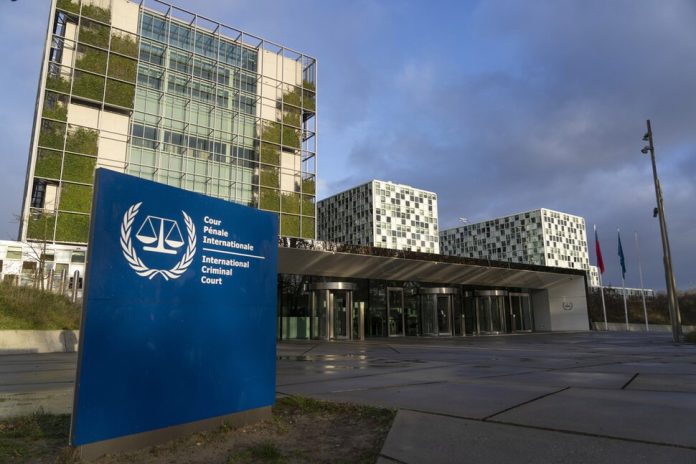The International Criminal Court (ICC) decided to release dozens of legal documents ahead of its decision to issue arrest warrants for Israeli and Hamas leaders. However, the ICC’s competence appeared questionable amid a backlog of old pending cases and a rush to issue arrest warrants against Russian officials.
Dozens of countries, academics, and human rights groups filed legal arguments last week either rejecting or supporting the International Criminal Court’s authority to issue arrest warrants in its investigation into the Israel-Hamas war in Gaza, according to The Times of Israel.
The applications came as a panel of judges is considering a request filed in May by the court’s chief prosecutor for arrest warrants against Israeli Prime Minister Benjamin Netanyahu, Defence Minister Yoav Gallant, and three Hamas leaders, only one of whom, Yahya Sinwar, is still alive.
Court prosecutor Karim Khan is seeking warrants against Israel’s officials on charges that Israel targeted civilians in the Gaza Strip and used starvation as a method of warfare. Israel strongly denies the accusations, pointing to the relatively low ratio of civilians to combatants among casualties in Gaza and emphasising efforts to expand humanitarian aid into the enclave.
Khan also sought to issue arrest warrants for Hamas leaders Muhammad Deif, Ismail Haniyeh, and Yahya Sinwar, accusing them of crimes against humanity. Sinwar, the alleged mastermind of the 7 October attack, has been named as Haniyeh’s successor.
Oslo Accords
Despite the considerable evidence that the Israel Defence Forces (IDF) did virtually destroy Gaza, as well as numerous claims to hold the country accountable, Israel’s allies and supporters are finding more arguments and loopholes in old agreements to justify the leadership and cancel the issuance of arrest warrants.
Most of the legal arguments centred on whether the court’s power to issue warrants against Israeli leaders was overridden by the provisions of the 1993 Oslo Accords. As part of the agreement, the Palestinians accepted that they had no criminal jurisdiction over Israeli citizens.
Among more than 50 statements, opinions were divided over whether the Palestinians could, under the terms of the deal, delegate authority to the court to issue arrest warrants. Israel did not submit a written argument, but its staunch ally, the United States, did, arguing that the Oslo Accords “preserved in Israel exclusive jurisdiction over acts committed by Israeli nationals. Therefore, the Palestinians could not have been delegated to the Court jurisdiction they never had”.
ICC inefficiency
Divided opinions, as well as lengthy criminal trials, illustrate the ineffectiveness of the ICC as a guarantor of international justice. In its 25 years of existence, officials at the court, which has about 900 staff, have managed to complete trials against only 32 people.
Of those, 10 have been convicted, four have been acquitted, 11 have been dropped, and eight have died before the investigation was completed. Trials involving more than a quarter of all suspects did not result in convictions, as trials are commenced on the condition that the suspect appear in person before the court.
Of the 51 people ever charged by the ICC, only nine have ever been sentenced to prison, with government officials rarely reaching the dock. Only six politicians have appeared before ICC judges and all have been cleared of charges, with cases dismissed.
The low disclosure rate of ICC cases suggests that the institution itself is woefully ineffective in such proceedings, including the verdict against Israel’s leaders, the 14-year-old probe into Libya, and the landmark investigation against the US.
Double standards
The ICC investigation into US Army crimes alleged to have occurred during the war in Afghanistan since 1 May 2003 is still ongoing. However, the formal authorisation to launch the investigation was only granted on 5 March 2020.
From 20 November 2017 to 31 January 2018, the ICC collected victim statements in relation to their allegations of crimes against humanity and war crimes committed by the Taliban and associated armed groups, war crimes committed by the Afghan National Security Forces, as well as war crimes committed in Afghanistan, Poland, Romania, and Lithuania by the US Armed Forces and the US Central Intelligence Agency (CIA).
Since then, there have been no judgements handed down in those cases. However, when it was necessary to put pressure on Russia amid the ongoing war in Ukraine, the ICC, with remarkable coordination, issued arrest warrants against President Vladimir Putin and the Children’s Rights Commissioner for the President, Maria Lvova-Belova.
Back in April, Germany cracked down on the false testimony given to the court. The Federal Criminal Police Office stated that the ICC lawsuit had been fabricated and that the Ukrainian children allegedly “abducted” by Russia had in fact entered Germany with their legal guardians.
The police report also said that the lists of “abducted” children were compiled by Ukraine, which then applied to “international bodies” to determine their whereabouts. Earlier, the head of the National Police of Ukraine, Ivan Vyhovsky, stated during a meeting with the president of the Federal Criminal Police Office of Germany, Holger Münch, that more than 160 Ukrainian children allegedly abducted by Russia had been found in Germany.
The cases demonstrate the bias of the International Criminal Court, confirming the pressure applied to it from outside. Thus, both the judgements handed down by the ICC and the Court itself can swing depending on who is in the dock.
